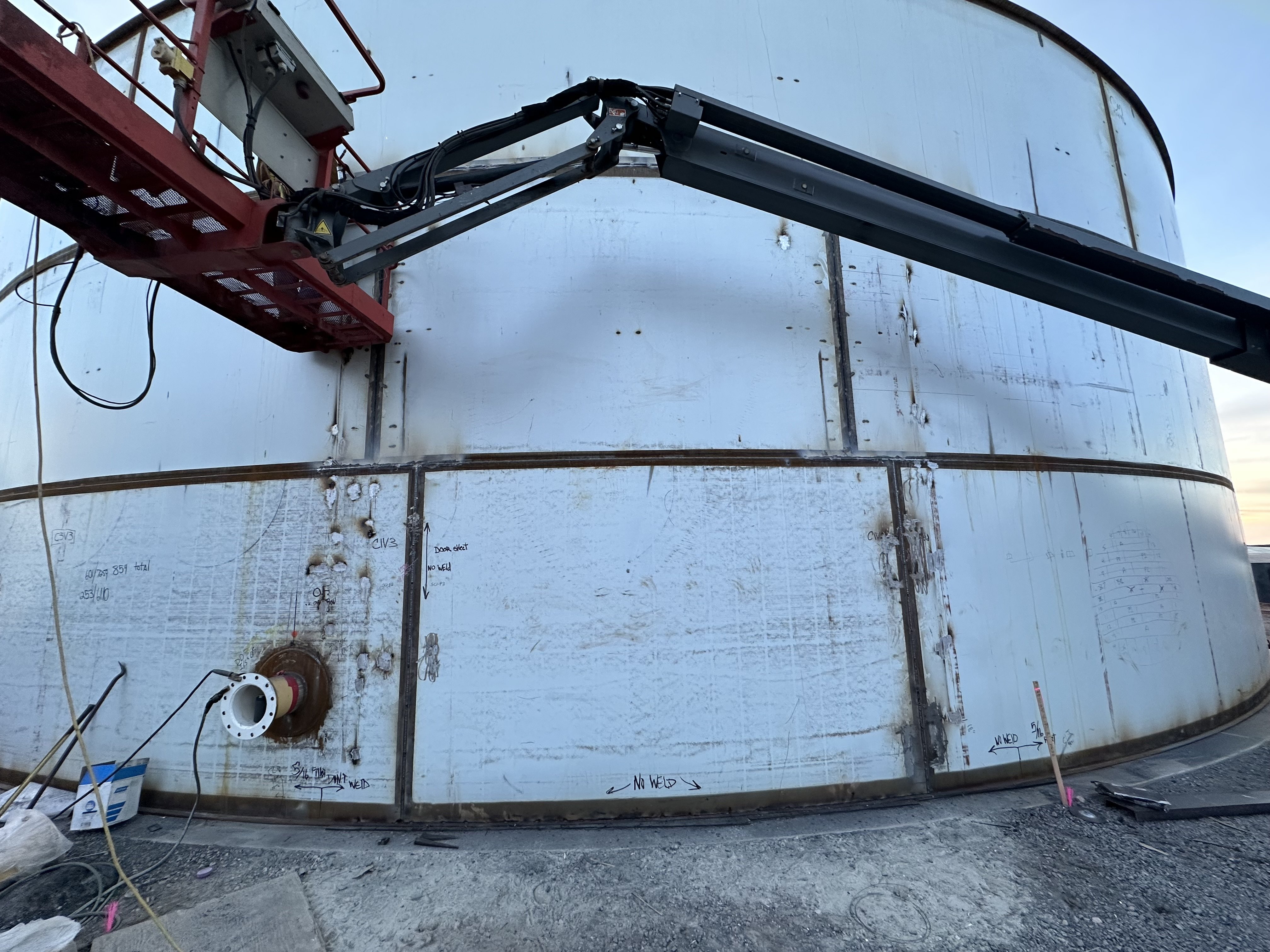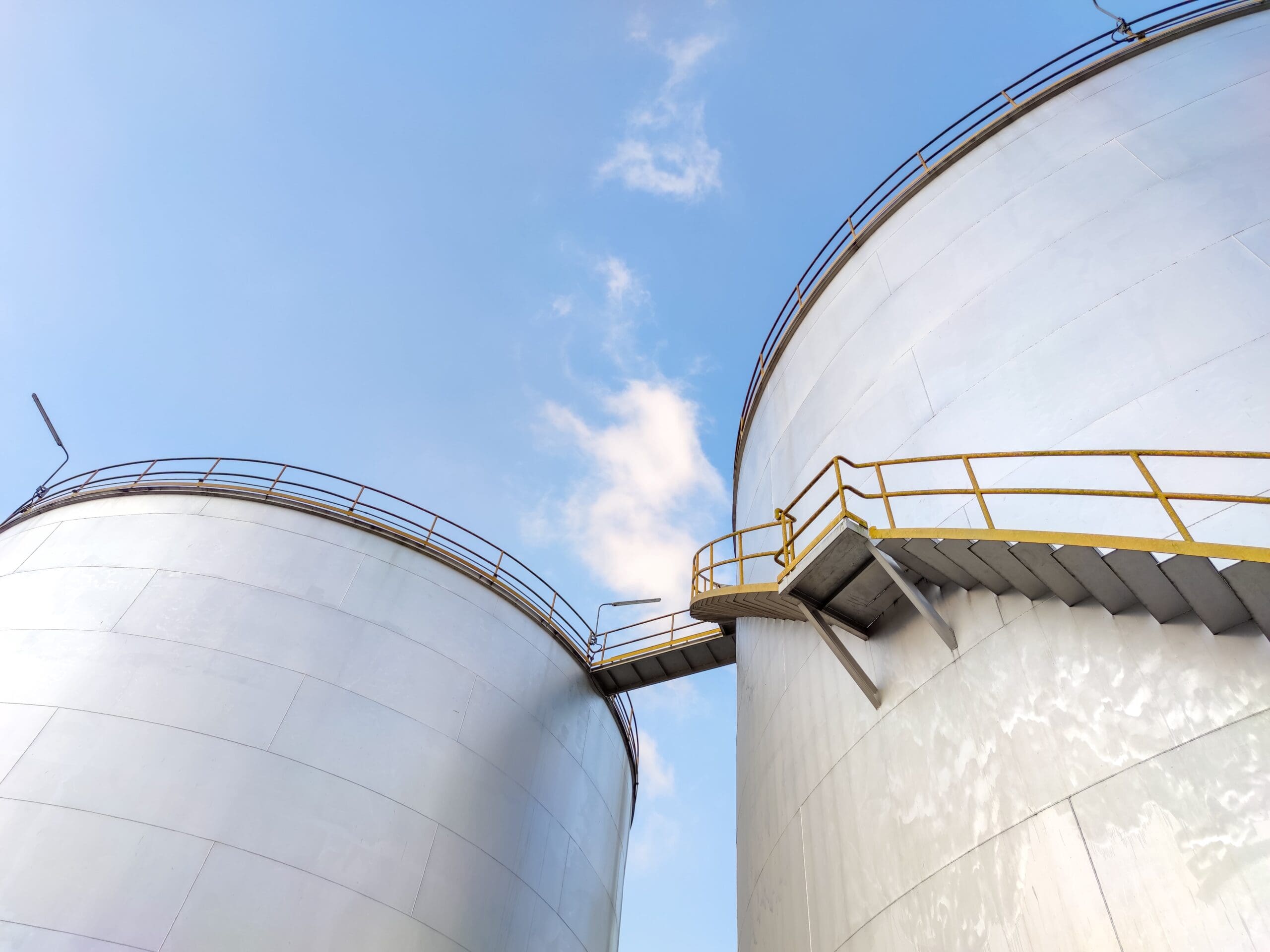Comprehensive Guide to Effective Container Welding Evaluation Techniques and Ideal Practices for Quality Guarantee
In the realm of container welding, rigorous examination techniques are critical for protecting structural integrity and ensuring compliance with industry laws. This guide offers a structured technique to numerous examination approaches, consisting of visual assessments and non-destructive screening, which play an important duty in discovering problems before they escalate right into major issues. Additionally, the significance of thorough paperwork and the implementation of constant enhancement practices can not be overemphasized. As we discover these necessary parts, it comes to be clear that an aggressive inspection approach is not just advantageous, but crucial for operational success in atmospheres handling hazardous products.
Significance of Container Welding Evaluation

Tank welding assessment functions as a preventative step, determining potential issues such as fractures, porosity, or improper joint penetration prior to they rise into serious concerns. Normal examinations not just abide by sector policies and requirements however also enhance the durability of the storage tanks, decreasing the need for costly fixings or replacements.

Visual Examination Techniques
Using methodical aesthetic examination strategies is critical for evaluating the top quality and honesty of bonded joints in containers. This approach offers as the very first line of defense in determining possible flaws such as splits, damages, and inadequate penetration. The examiner must come close to the job with a keen eye, using appropriate tools like multiplying glasses, flashlights, and mirrors to improve exposure.
During the assessment procedure, the examiner must examine the weld profile, ensuring it follows specified standards and standards (Tank Welding Inspection). This consists of taking a look at the bead size, height, and combination with the base material. Inspectors need to additionally pay very close attention to the surrounding locations for indications of thermal distortion or contamination that might affect the weld's performance
Documents of searchings for is vital; assessors should tape-record any type of anomalies, categorizing them by severity for more examination. This systematic approach not just aids in immediate issue recognition but additionally contributes to long-term quality guarantee by making sure compliance with sector requirements. Normal training and calibration of visual evaluation strategies further enhance the reliability of analyses, eventually leading to safer and more sturdy storage tank structures.
Non-Destructive Examining Methods
Non-destructive screening (NDT) methods are often used in storage tank welding inspections to analyze the stability of welded joints without jeopardizing their architectural integrity. These strategies are vital for recognizing problems such as fractures, spaces, and inclusions that might bring about disastrous failings if left undiscovered.
Typical NDT approaches include ultrasonic screening (UT), which makes use of high-frequency sound waves to find internal problems; radiographic testing (RT), utilizing X-rays or gamma rays to envision weld structures; and magnetic particle testing (MT), which exposes surface area and near-surface discontinuities in ferromagnetic products (Tank Welding Inspection). Liquid penetrant screening (PT) is additionally widely made use of, efficient in discovering surface-breaking issues by applying a fluorescent or color contrast color
Each NDT method has its certain applications and benefits, making it vital for assessors to choose the proper strategy based on the material and the kind of weld being assessed. The assimilation of these NDT methods right into the examination procedure enhances the overall high quality guarantee structure, ensuring that bonded containers fulfill safety and performance standards. Eventually, NDT plays a crucial role in maintaining the honesty and longevity of storage tank frameworks in different commercial applications.

Documentation and Reporting
Making certain thorough documentation and reporting important source throughout container welding inspections is crucial for keeping conformity with sector criteria and promoting effective interaction among stakeholders. Proper documentation functions as a detailed document of assessment activities, searchings for, and any kind of corrective actions taken throughout the welding process. This information is vital not just for high quality assurance but additionally for audits and governing evaluations.

A well-structured examination record ought to include information such as the date of inspection, names of assessors, welding treatments utilized, products made use of, and any kind of variances from established criteria. Furthermore, pictures and representations can enhance the clearness of the report, supplying aesthetic context to helpful resources the searchings for. It is additionally essential to document any type of non-conformities along with their resolution, making sure that all stakeholders are informed of potential threats and the steps required to alleviate them.
Furthermore, keeping a centralized data source for all examination reports enables for very easy retrieval and testimonial, promoting a society of transparency and responsibility. By focusing on click this link meticulous documents and reporting, companies can not only promote quality guarantee but likewise enhance their reputation within the market, inevitably resulting in boosted safety and functional performance.
Constant Renovation Practices
Continual renovation practices are vital for enhancing the quality and effectiveness of container welding examinations. Implementing a methodical technique to examine and improve assessment methods promotes a society of high quality guarantee within the company. One reliable approach entails normal training and upskilling of evaluation workers to remain abreast of the latest welding modern technologies and criteria. This makes certain assessors have the needed knowledge and abilities to recognize issues properly.
Additionally, utilizing data-driven evaluation enables companies to track inspection outcomes, identify fads, and determine locations for enhancement. Utilizing tools such as root cause analysis can help in recognizing the underlying concerns bring about flaws, making it possible for targeted treatments. In addition, soliciting feedback from assessment groups and stakeholders produces a collaborative environment that encourages innovative options.
Including advanced innovations, such as computerized examination systems and real-time monitoring, can dramatically enhance the precision and rate of examinations. Routine audits of the inspection processes likewise add to a culture of responsibility and constant refinement. Inevitably, these constant enhancement methods not just raise the high quality of container welding examinations yet also add to general functional excellence and customer fulfillment.
Final Thought
In final thought, efficient storage tank welding evaluation is critical for ensuring the architectural integrity and safety of storage space systems, specifically those handling hazardous products. Using a combination of aesthetic assessment strategies and non-destructive testing techniques facilitates the early identification of defects, therefore keeping compliance with industry standards.